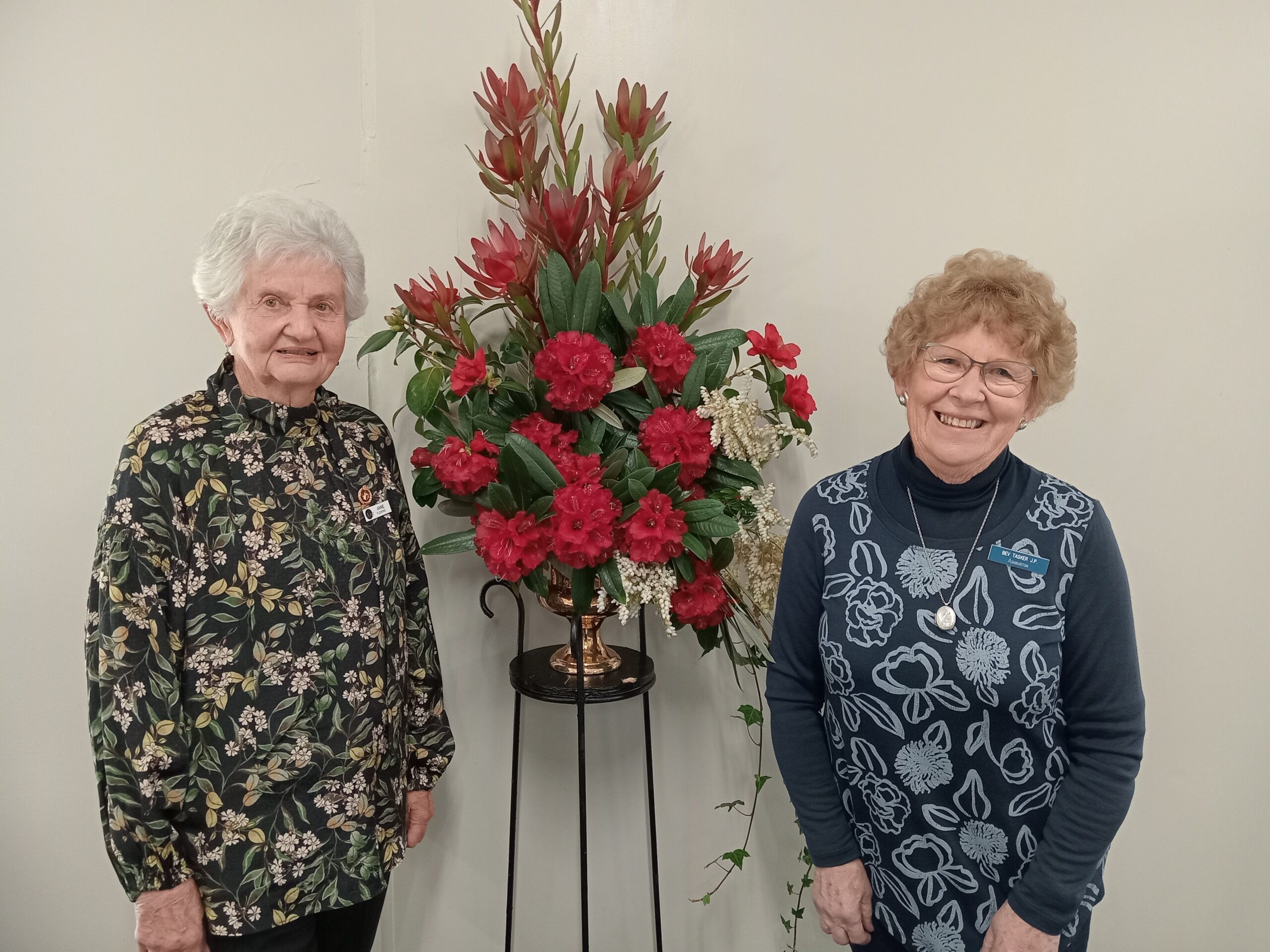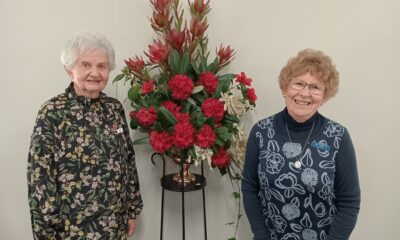Top Stories
Women Justices of the Peace Celebrate Progress in Ashburton

Approximately 40 Justices of the Peace (JPs) from various regions, including Southland, Otago, North and South Canterbury, and Christchurch, convened for a day and a half at the Plains Railway complex in Tinwald. The gathering featured discussions on community service and included speeches from notable figures such as Ashburton Mayor Neil Brown, Rangitata MP James Meager, and Nigel Tate, the national president of the Royal Foundations NZ Justices’ Association.
Attendees also heard from guest speakers, including Special Trade Envoy Hamish Marr, Rubisco natural fibres CEO Guy Wills, and Carolyn Clough, the executive officer of the Advance Ashburton Community Foundation. The event highlighted the diverse cultural needs of service users, with presentations on the experiences of Samoan, Filipino, Nepalese, and European communities utilizing JP services.
A significant part of the event included an interfaith reflection service, which served to remind the JPs of their vital role as volunteer leaders within their communities. With Suffrage Day approaching on September 19, discussions turned to the historical context of women serving as JPs in New Zealand.
Women began advocating for the right to become JPs in New Zealand in the late 1800s. At that time, male lawmakers were largely opposed to women holding such positions. Following women’s suffrage in 1893, Elizabeth Yates was elected as the Mayor of Onehunga in 1894. This significant milestone raised questions about whether Yates would also be appointed as a JP ex officio.
Under-Secretary Charles Haselden advised the Minister of Justice, stating, “I suppose Mrs. Yates must be sworn in as a JP.” Yates was subsequently appointed and took the oath.
The movement for women’s inclusion gained momentum, but faced resistance. In 1903, various women’s groups petitioned then Prime Minister Richard Seddon, known for his unsympathetic stance, to reconsider. Seddon responded, asserting, “I firmly believe women’s emotions could warp their judgment.”
The struggle culminated on August 23, 1936, when the Justices of the Peace Amendment Act 1926 was enacted, permanently allowing the appointment of women as JPs.
Retired JPs Bev Tasker and Anne Fleming, who served for decades, shared their insights and experiences, emphasizing the importance of acknowledging the historical fight for equality. Their contributions reflect the ongoing commitment of JPs to serve their communities while honouring the legacy of those who came before them.
The gathering in Ashburton not only celebrated the achievements of women in the justice system but also reinforced the ongoing mission of JPs to foster community support and engagement across diverse cultural landscapes.
-

 Sports2 months ago
Sports2 months agoNetball New Zealand Stands Down Dame Noeline Taurua for Series
-

 Entertainment2 months ago
Entertainment2 months agoTributes Pour In for Lachlan Rofe, Reality Star, Dead at 47
-

 Entertainment4 weeks ago
Entertainment4 weeks agoNew ‘Maverick’ Chaser Joins Beat the Chasers Season Finale
-

 Sports1 week ago
Sports1 week agoEli Katoa Rushed to Hospital After Sideline Incident During Match
-

 Sports2 months ago
Sports2 months agoSilver Ferns Legend Laura Langman Criticizes Team’s Attitude
-

 Politics1 month ago
Politics1 month agoNetball NZ Calls for Respect Amid Dame Taurua’s Standoff
-

 Entertainment2 months ago
Entertainment2 months agoKhloe Kardashian Embraces Innovative Stem Cell Therapy in Mexico
-

 Sports5 days ago
Sports5 days agoJamie Melham Triumphs Over Husband Ben in Melbourne Cup Victory
-

 World3 months ago
World3 months agoPolice Arrest Multiple Individuals During Funeral for Zain Taikato-Fox
-

 Sports3 months ago
Sports3 months agoGaël Monfils Set to Defend ASB Classic Title in January 2026
-

 Entertainment1 month ago
Entertainment1 month agoTyson Fury’s Daughter Venezuela Gets Engaged at Birthday Bash
-

 Sports1 month ago
Sports1 month agoHeather McMahan Steps Down as Ryder Cup Host After Controversy














